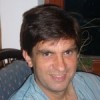I have often expressed the view that our industry is absolutely fascinating because of its relative immaturity and frequent lack of sync with the business world out there. Apart from the easily identifiable educational and perceptual gaps, there are a lot more correlations to be found with other immature industries.
For example, another typical gap is the standard of communication and professionalism. With the popularization of social media, typical self-promotion and industry politics are increasingly mistaken for actual involvement in specific ventures or even expertise in a given field. Thus, marketing and sales people very frequently present themselves as domain experts, failed entrepreneurs routinely become business consultants, and localization course attendees are quickly elevated to the status of technology gurus. In general, in our industry people are very happy to except most statements at face value for no apparent reason at all. And of course, everyone knows absolutely everything about standards, or at least they have an opinion on the subject.
Another typical phenomenon is that whenever something important around standards is announced in our industry, there is a whole crowd of entrepreneurial individuals and organizations that wish to get on the band wagon asap. Sadly, a whole lot of other people take these empty declarations seriously, ignore the blatant arrogance involved, and actually expect something positive to happen as a result of these declarations.
My little personal friend Jeromobot (whom I keep safely locked up in my personal safe where he will remain until our industry maturity model resembles anything close to a standard curve) or perhaps Jost Zetzsche (I never know which one of them is actually doing the writing) just wrote a very interesting article related to all the recent 'goings on' around standards. The recommended article is "Looking for a Safe Place to Live!" and was published in the most recent "188th Tool Kit" Newsletter (31.03.2011) - http://www.internationalwriters.com/toolkit/current.html.
The author makes several very sensible comments and presents some valid points concerning the recent announcements made by TAUS (the Translation Automation User Society, about them ‘taking on the role of an ‘industry watchdog for interoperability” by funding a "dashboard" that will track compliance of the various tools, particularly to TMX, XLIFF, etc., and GALA (the Globalization and Localization Association) and their newest standards initiative which will "seek input from localization buyers and suppliers, tool developers, and various partner localization and standards organizations by hiring Arle Lommel (formerly of LISA) to be in charge of this new program and "explore funding options for a long-term, stable standards program that is available to all in the industry."
What is really noteworthy in these and similar announcements is the combination of ambition and arrogance that is directly proportional to ignorance about industry standards, and lack of any real commitment to do actual development work. It is hardly surprising that while many people were confused and duped as usual, there were also a lot of negative comments from people actually involved with, or knowledgeable about, standards work.
As people quite rightly point out, TAUS is a semi-commercial venture and mainly represents large translation buyers, while GALA represents predominantly translation companies. Both do not represent any significant segment of the industry and are basically dedicated to promoting the interests of their members (some odd 400 companies) and their illustrious leaders – which is actually quite natural. What is more, neither organization has any previous record of developing or publishing any standards whatsoever.
Given the above, my personal message to all of our industry’s the self-declared ‘watch-dogs’, ‘top-dogs’, and ‘hot [air]-dogs” is this: Why don’t you guys first try and find out something about the standards that you wish to embrace so passionately. Then try joining some standardization organization and become a member of a TC, pay some fees, and try doing some standards development work yourself. And after you’ve contributed pro public bono to standards development and invested your own time, money and effort for a couple of years, you might lose the urge to run around in short pants blowing your own trumpet and start behaving like professionals who deserve to be treated seriously.
The reality behind standards work is that there is a very small group of experts that actually develop these industry standards at their own expense within a very small group of professional organizations (ISO, OASIS, Unicode, sometimes CEN and LISA, and one or two others), and the people that develop the standards do not normally try to cash in on them or otherwise promote themselves by coming out with all sorts of “hot air” initiatives. They just do the work because it interests them, makes sense, benefits the industry, and society as a whole.
We live in a day and age where anybody can check the credibility, expertise and credentials of any individual on the planet at just a click of the mouse, and yet many people are very happy to give up this privilege, prefer to choose ignorance over rational behaviour and, given the right circumstances, will happily worship any prophet that makes some suitably bombastic declarations, or learns how to use Twitter to pester other people at work.
I sometimes imagine that Ralph Nader would flip backwards if he saw people in our industry give credibility, and frequently pay good money, to read and listen to self-styled experts who they would never ever dream of buying a used car from.
Well, instead of constantly muttering “O tempora, o mores!”, we should all honestly acknowledge that our industry gets exactly the sort of experts that it deserves. Or just shrug, because as we say in Poland, “the dogs may bark, but the caravan just keeps moving on”.
P.S.
It has been announced by very important industry media that pending memoQfest (held on April 15, 2011, in Budapest) special measures and preparations to protect Jeromobot more adequately this time around are under way. However, Al Jazeera has just reported that there is another terrorist plot brewing on the wild steppes of our industry, and Jeromobot may once again be in danger of being abducted and taken hostage by fanatics. So, let’s all extend our support and keep Jeromobot – in the safe !







